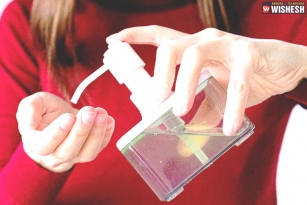
 OK, so now you know how to form a habit — and remember, only do them one at a time — but you want to know the seven little habits. Here they are, in my order of preference (but yours may be different):
OK, so now you know how to form a habit — and remember, only do them one at a time — but you want to know the seven little habits. Here they are, in my order of preference (but yours may be different):
1. Develop positive thinking:
I put this first because I think it’s the keystone habit that will help you form the other important habits. Sure, positive thinking by itself won’t lead to success, but it certainly goes a long way to motivate you to do the other things required.
I learned this when I quit smoking — when I allowed myself to think negative thoughts, I would end up failing. But when I learned how to squash negative thoughts and think positive ones instead, I succeeded. This discovery lead to me practicing this over and over, until I was able to form just about any habit I needed. It’s been invaluable to me, and I think it could be to most people.
Focus on this habit first, and you’ll have a much easier time with any of the others. Start by becoming more aware of your negative self-talk — do a little tally sheet throughout the day, marking a tally each time you notice a negative thought. Soon you’ll recognize them, and you can squash them.
2. Exercise:
People who’ve been hearing me harp on about exercise might roll their eyes. Sure, exercise is healthy and all that, but how exactly is it life changing? I’m glad you asked:
It makes you feel better about yourself, and more confident. That leads to better success with other positive changes.
It reinforces the positive thinking habit — you need to think positive in order to sustain exercise.
It relieves stress and gives you time to think — this leads to better mental well-being in your life overall.
It helps with creativity. Don’t ask me to prove it, except to say that my best ideas and brainstorming sessions come from when I exercise.
3. Single-tasking:
The opposite of multi-tasking — you’ve heard me harp on about this one as well. Why is it life-changing? A couple powerful reasons:
You’ll be more effective with your tasks and get more done. It’s hard to achieve important things if you’re constantly switching tasks and distracted by other “urgent” things.
You’ll be less stressed overall and (in my experience) happier throughout your day.
4. Focus on one goal:
Just as focusing on one task at a time is more effective, and focusing on one habit at a time is more effect, so is focusing on one goal at a time. While it might seem very difficult, focusing on one goal at a time is the most powerful way of achieving your goals. When you try to take on many goals at once, you’re spreading thin your focus and energy — the two critical components for achieving a goal.
What if you have 5 goals you want to achieve? Pick one to focus on first. Break it into a mini-goal you can accomplish this month, if it’s a longer-term goal. Pick an action you can do today. Keep doing this until the goal is accomplished — do an action every day, finish the mini-goal, pick the next mini-goal to work on. Then, when your One Goal is completed, focus on the next goal.
Some goals are ongoing ones — like blogging every day, or exercising every day. In those cases, turn them into habits — focus exclusively on turning the goal into a habit, until the habit is ingrained. Then focus on the next goal.
5. Eliminate the non-essential:
First, identify the essential — the things in your life that are most important to you, that you love the most. Then eliminate everything else. This simplifies things and leaves you with the space to focus on the essential. This process works with anything — with your life in general, with work projects and tasks, with emails and other communication.This will change your life because it will help you to simplify, to focus on what’s important, and to build the life you want.
6. Kindness:
Yes, kindness is a habit. And it can be cultivated. Focus on it every day for a month and you’ll see profound changes in your life. You’ll feel better about yourself as a person. You’ll see people react to you differently and treat you better, over the long run. It’s karma.
How do you develop the kindness habit? First, make it a goal to do something kind for someone each day. At the beginning of the day, figure out what that kind act will be and then do it during the day. Second, each time you interact with someone, try to be kind, be friendly, be compassionate. Third, try to go beyond small kindnesses to larger acts of compassion, volunteering to help those in need and taking the initiative to relieve suffering.
7. Daily routine:
It’s so simple, but creating a daily routine for yourself can make a big difference in your life. The best routines, I’ve found, come at the start and end of the day — both your workday and your day in general. That means, develop a routine for when you awake, for when you first start working, for when you finish your workday, and for the end of your evening.
How will that change your life? It will help you get a great start to your day, and finish your day by preparing for the next day. It’ll help you firmly root the productive habits you want to firm in your everyday life. It’ll help you focus on what’s important, not just what comes up. It’ll help you make sure you get done all the things you really want to make sure gets done everyday. And that can mean a lot.


























